The New Wave was a science fiction style of the 1960s and 1970s, characterized by a great degree of experimentation with the form and content of stories, greater imitation of the styles of non-science fiction literature, and an emphasis on the psychological and social sciences as opposed to the physical sciences. New Wave authors often considered themselves as part of the modernist tradition of fiction, and the New Wave was conceived as a deliberate change from the traditions of the science fiction characteristic of pulp magazines, which many of the writers involved considered irrelevant or unambitious.
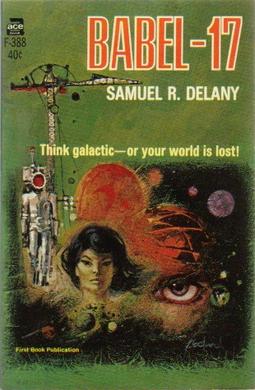
Babel-17 is a 1966 science fiction novel by American writer Samuel R. Delany in which the Sapir–Whorf hypothesis plays an important part. It was joint winner of the Nebula Award for Best Novel in 1967 and was also nominated for the Hugo Award for Best Novel in 1967.

The Encyclopedia of Science Fiction (SFE) is an English language reference work on science fiction, first published in 1979. It has won the Hugo, Locus and British SF Awards. Two print editions appeared in 1979 and 1993. A third, continuously revised, edition was published online from 2011; a change of web host was announced as the launch of a fourth edition in 2021.
Alexei Panshin was an American writer and science fiction critic. He wrote several critical works and several novels, including the 1968 Nebula Award–winning novel Rite of Passage and, with his wife Cory Panshin, the 1990 Hugo Award–winning study of science fiction The World Beyond the Hill.

Erotic literature, or literotica, comprises fictional and factual stories and accounts of eros intended to arouse similar feelings in readers. This contrasts erotica, which focuses more specifically on sexual feelings. Other common elements are satire and social criticism. Much erotic literature features erotic art, illustrating the text.

John Frederick Clute is a Canadian-born author and critic specializing in science fiction and fantasy literature who has lived in both England and the United States since 1969. He has been described as "an integral part of science fiction's history" and "perhaps the foremost reader-critic of science fiction in our time, and one of the best the genre has ever known." He was one of eight people who founded the English magazine Interzone in 1982.

Peter Douglas Nicholls was an Australian literary scholar and critic. He was the creator and a co-editor of The Encyclopedia of Science Fiction with John Clute.

LGBT themes in speculative fiction include lesbian, gay, bisexual, or transgender (LGBTQ) themes in science fiction, fantasy, horror fiction and related genres.[a] Such elements may include an LGBT character as the protagonist or a major character, or explorations of sexuality or gender that deviate from the heteronormative.
Lewis Padgett was the joint pseudonym of the science fiction authors and spouses Henry Kuttner and C. L. Moore, taken from their mothers' maiden names. They also used the pseudonyms Lawrence O'Donnell and C. H. Liddell, as well as collaborating under their own names.
The Romance of Lust, or Early Experiences is a Victorian erotic novel written anonymously in four volumes during the years 1873–1876 and published by William Lazenby. Henry Spencer Ashbee discusses this novel in one of his bibliographies of erotic literature. In addition the compilers of British Museum General Catalogue of Printed Books list this book.

The Jewels of Aptor is a 1962 science fantasy novel by Samuel R. Delany, his first published novel. It first appeared in shortened form as an Ace Double F-173 together with Second Ending by James White.
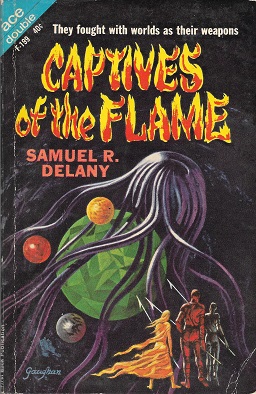
Captives of the Flame is a 1963 science fantasy novel by Samuel R. Delany, and is the first novel in the "Fall of the Towers" trilogy. The novel was originally published as Ace Double F-199 together with The Psionic Menace by Keith Woodcott. It was later rewritten as Out of the Dead City and published by Signet Books in 1968.
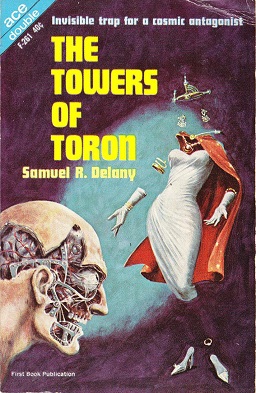
The Towers of Toron is a 1964 science fantasy novel by Samuel R. Delany, and is the second novel in the "Fall of the Towers" trilogy. The novel was originally published as Ace Double F-261, together with The Lunar Eye by Robert Moore Williams.
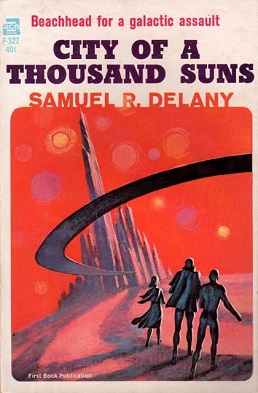
City of a Thousand Suns is a 1965 science fantasy novel by American writer Samuel R. Delany, the final novel in the Fall of the Towers trilogy.
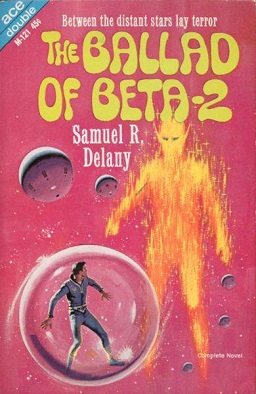
The Ballad of Beta-2 is a 1965 science fiction novel by American writer Samuel R. Delany. The book was originally published as Ace Double, together with Alpha Yes, Terra No! by Emil Petaja.
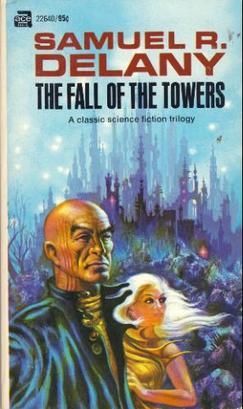
The Fall of the Towers is a trilogy of science fantasy books by American writer Samuel R. Delany.

Samuel R. "Chip" Delany is an American writer and literary critic. His work includes fiction, memoir, criticism, and essays on science fiction, literature, sexuality, and society. His fiction includes Babel-17, The Einstein Intersection ; Hogg, Nova, Dhalgren, the Return to Nevèrÿon series, and Through the Valley of the Nest of Spiders. His nonfiction includes Times Square Red, Times Square Blue, About Writing, and eight books of essays. He has won four Nebula awards and two Hugo Awards, and he was inducted into the Science Fiction and Fantasy Hall of Fame in 2002.
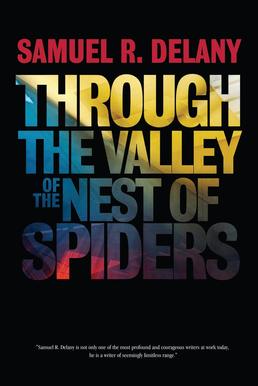
Through the Valley of the Nest of Spiders is a novel by Samuel R. Delany.

Voodoo Planet is a science fiction novel by American writer Andre Norton, first published in 1959 by Ace Books. This is a short novel that was usually published in a double-novel format. It is part of the Solar Queen series of novels.
Carl Howard Freedman is an American writer, literary theorist and professor of English literature at Louisiana State University. He is best known for the non-fiction book Critical Theory and Science Fiction, and his scholarly work on the writer Philip K. Dick. Freedman's other works include a series of books on Isaac Asimov, Ursula K. Le Guin and Samuel R. Delany, and several essays and a book on China Miéville. In 2018, he won the Pilgrim Award for lifetime contribution to science fiction and fantasy scholarship.















